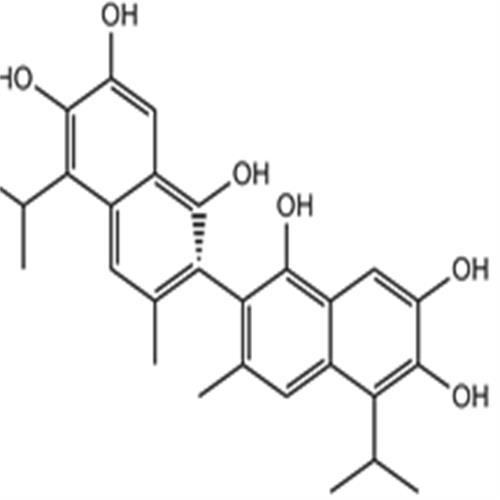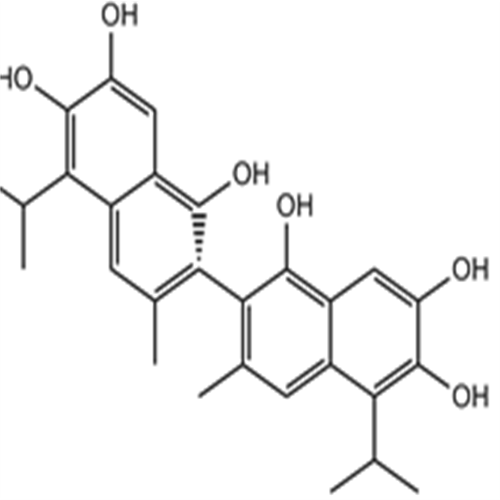产品属性:
产品名称 | 规格 | CAS号 | 型号 |
(+)-Apogossypol | 10mM (in 1mL DMSO) 5mg 10mg | 66389-74-0 | EY-Y0165047 |
Cas No.66389-74-0
别名 N/A
化学名 (R)-5,5'-diisopropyl-3,3'-dimethyl-[2,2'-binaphthalene]-1,1',6,6',7,7'-hexaol
分子式 C28H30O6

分子量 462.53
溶解度 ≥ 16.2mg/mL in DMSO with gentle warming
储存条件 Store at -20°C
General tips For obtaining a higher solubility , please warm the tube at 37 ℃ and shake it in the ultrasonic bath for a while.
Shipping Condition Evaluation sample solution : ship with blue ice
All other available size: ship with RT , or blue ice upon request
产品描述:
(+)-Apogossypol is a pan-BCL-2 antagonist. (+)-Apogossypol binds to Mcl-1, Bcl-2 and Bcl-xL with EC50s of 2.6, 2.8 and 3.69 μM, respectively.
In agreement with NMR binding and fluorescence polarization assays (FPAs) data, (+)-Apogossypol displays potent binding affinity to Bcl-xL with Kd values of 1.7 μM[1].To investigate the inhibitory effects of (+)-Apogossypol and Gossypol on LNCaP cell survival, the MTT assay is performed. The results demonstrate that (+)-Apogossypol inhibits the proliferation of LNCaP cells in a time- and dose-dependent manner, in a similar way with Gossypol. The concentration for 50% inhibition (IC50) on LNCaP cells within ~72 h is 9.57 μM, while the IC50 of Gossypol on LNCaP cells is 10.35 μM[2].
Due to its modified structure, (+)-Apogossypol is expected to exhibit lower toxicity while maintaining the significant anti-growth and anti-tumor activities in vitro, similar to those of Gossypol. The anti-cancer effect of (+)-Apogossypol is evaluated in mice bearing subcutaneous LNCaP cell xenografts. The tumor growth is monitored and measured by a caliper and balance. The survival rate of the mice is notably improved by (+)-Apogossypol. Of note, the tumor sizes are also markedly decreased by (+)-Apogossypol treatment (P<0.01)[2].
References:
[1]. Wei J, et al. Apogossypol derivatives as antagonists of antiapoptotic Bcl-2 family proteins. Mol Cancer Ther. 2009 Apr;8(4):904-13.
[2]. Zhan W, et al. Inhibitory activity of apogossypol in human prostate cancer in vitro and in vivo. Mol Med Rep. 2015 Jun;11(6):4142-8.




